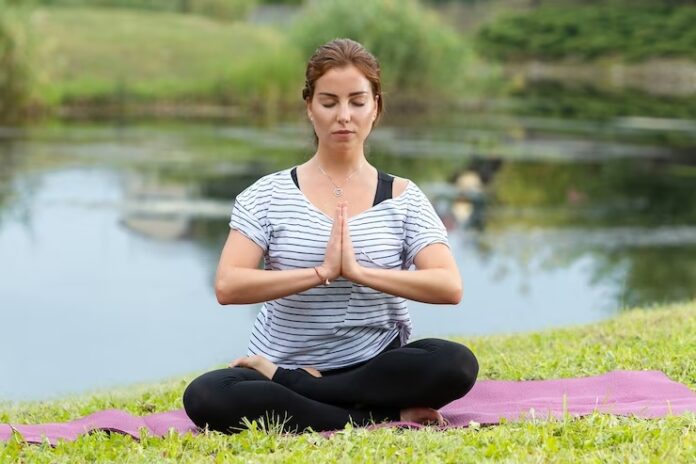Yoga can be a beneficial practice for managing cold and cough symptoms, as it helps improve respiratory function, boosts the immune system, and promotes relaxation. However, it’s important to note that yoga is not a substitute for medical treatment. If you have a severe or persistent cold or cough, it’s crucial to seek professional medical advice.
Here are some yoga practices that may help alleviate cold and cough symptoms:
- Breathing Exercises (Pranayama): Pranayama techniques can improve lung capacity, clear the respiratory tract, and enhance overall respiratory health. Some beneficial pranayama techniques for cold and cough include:a. Deep Breathing: Sit in a comfortable position, close your eyes, and take slow, deep breaths. Inhale deeply through your nose, filling your lungs, and then exhale slowly through your nose.b. Nadi Shodhana (Alternate Nostril Breathing): This technique helps clear the nasal passages and balance the flow of energy in the body. Using your right thumb, close your right nostril and inhale deeply through your left nostril. Then close your left nostril using your right ring finger, release the right nostril, and exhale through the right nostril. Continue this pattern, alternating the breath through each nostril.
- Gentle Yoga Poses: Practicing gentle yoga poses can help improve circulation, reduce congestion, and relieve tension in the body. Some suitable poses include:a. Supported Fish Pose (Matsyasana): Lie on your back with a yoga block or cushion placed under your upper back and head. Allow your chest to open and breathe deeply, helping to clear the respiratory passages.b. Bridge Pose (Setu Bandhasana): Lie on your back with your knees bent and feet flat on the floor. Lift your hips off the ground, supporting your lower back with your hands. This pose can improve blood flow to the head and alleviate congestion.
- Meditation and Relaxation: Stress can weaken the immune system and exacerbate cold and cough symptoms. Practicing meditation and relaxation techniques can help reduce stress and promote healing. Spend a few minutes each day in meditation, focusing on deep and calm breathing to calm the mind and body.
- Stay Hydrated: Drink plenty of warm water, herbal teas, and nourishing soups to keep your body hydrated and to help soothe your throat.
- Rest and Listen to Your Body: While yoga can be beneficial, it’s crucial to listen to your body and not push yourself too hard when you’re feeling unwell. Allow yourself time to rest and recover.
- Remember, yoga should be practiced with care, especially when you are not feeling well. Always consult with a healthcare professional if you have any health concerns, and ensure that you are not engaging in yoga practices that might worsen your condition. Yoga can be a supportive addition to your self-care routine, but it should not replace medical advice or treatment for cold and cough.



